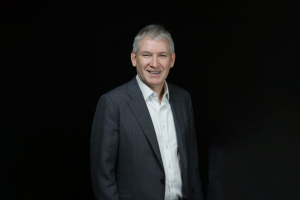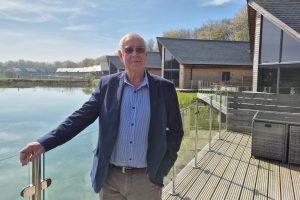Property Focus: The Interview – Andrew Hamilton

IN OUR series of interviews with top professionals from across the property sector, TheBusinessDesk catches up with Andrew Hamilton, head of BNP Paribas Real Estate’s Manchester office.
What are your views of the current state of the commercial property and property development markets?
There are signs that we are at the bottom of a very painful cycle, with some improvement in yields for prime property. Funding remains a significant issue though and there are concerns over rental prospects. I therefore see a steady improvement over the next couple of years, perhaps with a couple of hiccups along the way, but the worst is hopefully over.
In the development market, the supply of completed units in some sectors, together with funding and empty rates issues mean that speculative development is not going to be viable in the short term. Development will need to go hand in hand with an occupier, with Peel’s Media City and the BBC being a good exemplar.
What key challenges and pieces of legislation do you think will most affect your sector over the coming months?
Empty rates are an obvious bug bear at the moment as it is a huge burden on an industry which has other problems to overcome as well.
Looking forward though the key challenge for the industry will be meeting the increasingly important environmental benchmarks in the development and occupation of buildings.
Why do you think the North West is a good place to work?
The North West has been at the forefront of virtually everything property related over the last twenty years, which reflects the regions long history of innovation in all sectors, so it is a really dynamic environment to work in. At the same time it is a really welcoming business environment, which means that there are fewer barriers than there are in other regions.
What is your favorite building/development in the North West and why?
Tom’s Chop House. It sums up Manchester in a single building for me. It is a great piece of Victorian architecture, and the atmosphere reflects the egalitarian and independent spirit of the region. Hopefully that will get me a free corned beef hash!
If you could improve anything in the region, what would it be?
There are still areas of the region’s city centres which would benefit from being car free, and overall there is not enough green space in the cities. If we could further improve these aspects our cities would be better regarded on the international stage.
What was your first job and how did you enter your current line of work?
My first job was a huge paper round for a weekly free newspaper. Bizarrely I was made redundant at the age of 14 when the paper closed, which was a useful lesson in life.
My careers master at school, Mr Rix, suggested two options to me for a career which were a car salesman or a chartered surveyor. I wanted a career that took me out and about so it was a no brainer really. I am grateful to John Breakell at Singletons in Manchester who was brave enough gave me my first job in property!
What do you most enjoy about your job?
It has to be the diverse range of clients that you meet, whether they be bankers, investors, developers or occupiers. You have to get to grips with what their business is about before you can properly advise them and this gives you a unique insight into so many different sectors.
What barriers have you faced during your career and how have you overcome them?
I have not really faced any significant barriers in my career. As with most industries your career path can sometimes appear to be blocked by others. Ultimately if you are good enough you will get the recognition, even if you don’t get the title to go with. It is a people industry and I think most people can see past the job title.
What is the best piece of advice you’ve ever been given?
Be independent and honest in your opinions. It is easy to get caught up in a client’s enthusiasm for a project. As a property advisor you need to stand back and critically evaluate the proposal, and if necessary give constructive feedback and advice. We are not paid by the client to be “yes men”. We are paid for our property experience and added value that we can bring to projects.
And the worst?
In my early days I was told by some cynics “look after number one”. Recent economic events have proven that it is actually the team players that think about the wider issues, such as business development for other disciplines, that are most beneficial in an organisation.







